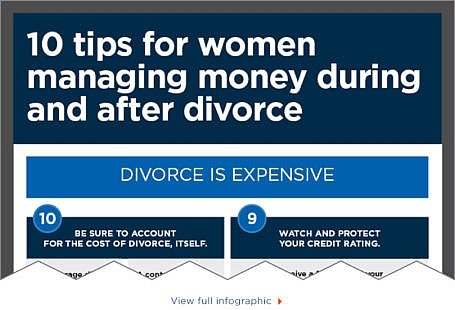 Here are the pros and cons of changing your name back to your maiden or family name after getting a divorce, plus tips on how to change your name.
Here are the pros and cons of changing your name back to your maiden or family name after getting a divorce, plus tips on how to change your name.
Nobody gives it a second thought when a woman changes her name after getting married, but what happens when the husband becomes the ex-husband? More and more women are deciding to change their names after getting a divorce.
It’s not as unusual – or as difficult – as you might think to change your name after a divorce. Some women can’t wait to go back to their maiden or family names, while others dread the thought. It really depends on each woman’s unique situation – which is why we’re listing the pros and cons of changing your name after getting a divorce.
Reasons to Change Your Name After a Divorce
This article was written by Sydney Tyler Thomas, who struggled with whether or not to change her name after getting her divorce.
A name change is a symbol of a clean break and new life. Whether you go back to using your maiden name or change your name entirely, changing your name after a divorce is a great way to make a clean break with your ex-husband. Just as taking his name when you married was a sign that the two of you are one, changing your name symbolizes your independence and the fact that you no longer wish to be affiliated financially, legally, or emotionally with your ex. Once the marriage is truly over, there is something cathartic and self-empowering about giving yourself the gift of a new name. It can be a way to move on after getting a divorce.
Should you change your name back to your maiden or family name? Ask yourself honestly if you really want to revert to your maiden name. Many women do, and that’s perfectly fine. However, more women are realizing that they don’t just want to set the reset button on their social life. They’ve reached a point in their life where they want to make a more profound life transition, and they change their name to something brand new after getting a divorce.
Are you struggling with the divorce? Read How to Let Go of Someone You Love.
Or perhaps you should change your name to reflect who you are now. Whether you consider it aging gracefully or finally coming into your own, successfully emerging on the other side of a divorce can be a wonderful time to celebrate the woman you’ve become. Perhaps you’ll start traveling, or take art classes, or learn to salsa dance. Chances are you’ll find that you’re not the person you once were – you changed your life. Just as the new you may benefit from a makeover with new clothes, makeup, and a more flattering hairstyle, changing your name can be an emotional makeover. Your parents didn’t know what type of woman you’d become when they named you at birth. Who better than you to give you a name that fits the woman you’ve become?
Reasons Not to Change Your Name
Let’s face it: changing your name after getting a divorce isn’t all moonlight and roses! Here are a few reasons a name change may not be a good idea…
If you’re a professional, changing your name can be confusing. If you’re a doctor or a lawyer with patients or clients who are used to addressing you by your married name, changing your name after getting a divorce can be confusing. It can also cause problems if you’re a professional actor or speaker, or if you have a large professional network. If your name is your brand, changing your name after a divorce may not be a good idea. Also, if you have young children you may find it easier to retain your ex-husband’s name so that you and your children have the same last name. However, with the growing number of blended families, this is becoming less of an issue than it once was.
Changing your name can cause fear-based reactions. There are other reasons women give for not changing their name after getting a divorce, but unless they really love their ex-husband’s last name, most of those reasons involve some element of fear.
Fear-based reasons to keep your husband’s name:
- Are you afraid of offending your parents? Were they offended when you got married and changed your last name from theirs to your ex-husband’s?
- Are you afraid it would be too complicated or too costly to change your name after getting a divorce? You may be surprised to find it’s not too difficult or costly.
- Are you afraid that it’s not fair to the children? Fine. If they like Daddy’s name, they can keep it. That doesn’t mean that you have to keep your married name, too.
- Are you afraid of change? If you survived a divorce, you’ve already experienced a lot of change! What’s one more?
What have you always wished your name was? This could be your chance to start fresh and change your name to something entirely new after getting a divorce.
If you’re having trouble coping with the divorce, read How to Transition From Marriage to Divorce.
How to Change Your Name After a Divorce
Request it in your divorce decree. If your divorce isn’t final yet, there’s a good chance that you can include the request for a name change in your divorce decree. If you’ve been divorced for a while, it’s not too late. Be wary of contacting a lawyer to help you change your name after getting a divorce. They’re likely to charge you a lot of money to do something that you may very well be able to do yourself. Contact the circuit court in the city or county where you live. Someone in the clerk’s office can tell you what form(s) you need to fill out to have your name changed legally.
Make copies of your legal name change documents. Once the name change has been finalized and recorded with the court, make lots of copies of the legal name change order. From this point, it really is as simple as it was when you changed your name when you got married. You’ll want to start using your new name consistently, and contact every person or organization that you do business with to notify them of the name change after a divorce. Some will require a copy of the name change order for their records.
Contact your bank and other financial institutions, employer creditors, Department of Motor Vehicles, Social Security Administration, doctor’s offices, insurance providers, Passport office, Voters Registration Office, IRS and state tax department, utility companies, public library, landlord or mortgage holder, and of course, family and friends. Don’t forget to update your will and any other legal documents after getting a divorce. And, of course, be sure to let your family and friends know you changed your name!
If you have any thoughts about changing your name after getting a divorce, please comment below.
Resources for After You Get a Divorce
- Care Package Gift Basket – to pamper yourself while you make all the legal and financial decisions of changing your name after getting a divorce!
- Divorce After 50: Your Guide to the Unique Legal & Financial Challenges by Janice Green
- How to Manage Money After Divorce – an article here on New Beginnings, to help you get back on your feet financially
Written by Sydney Tyler Thomas, a writer and small business owner living in Virginia. She is author of The Joy of Soulful Knitting: Reflections on the Art of the Craft. You can also visit Sydney at her blog, New Calling.





